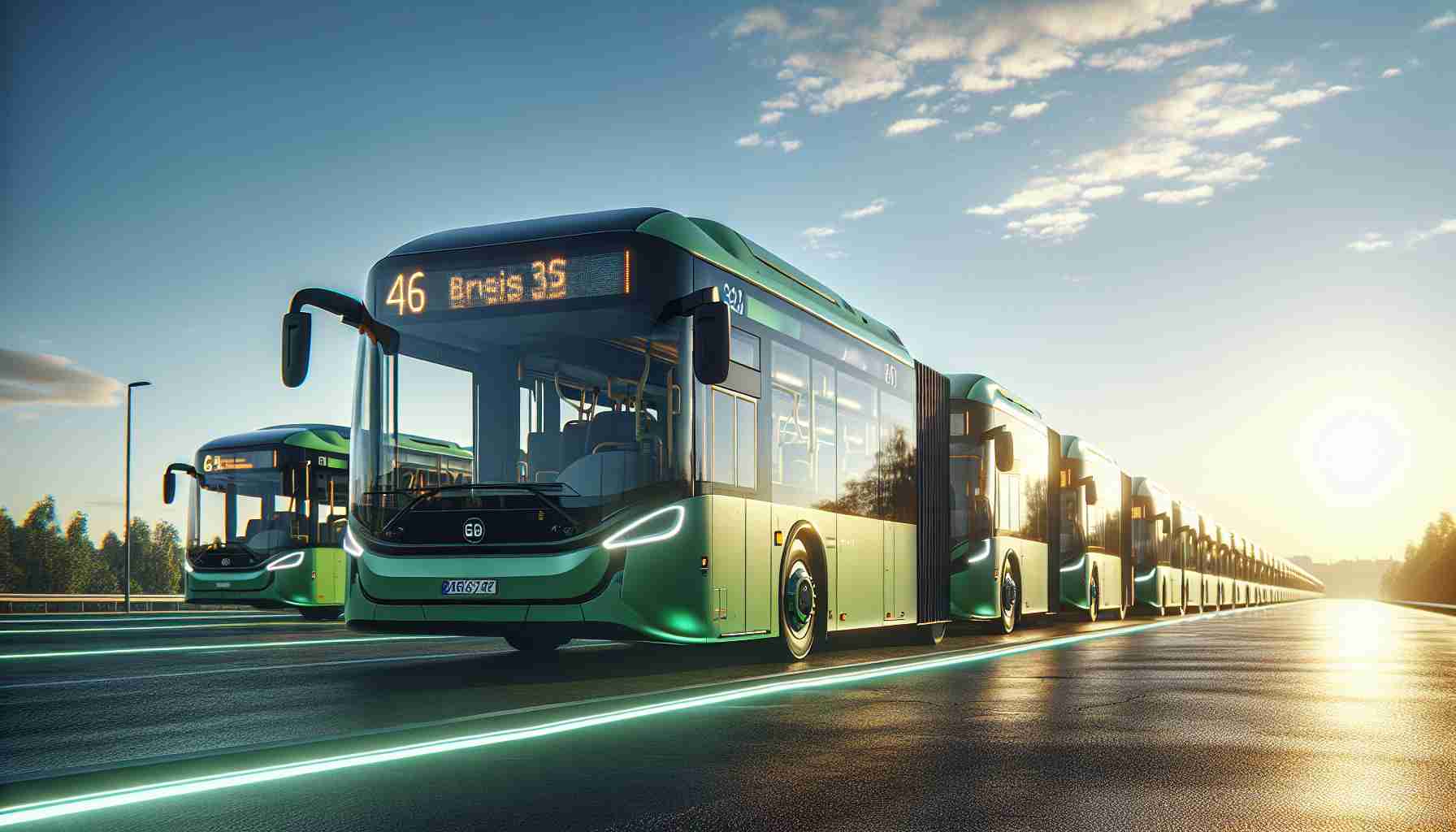
Leading the Charge in Sustainable Transport
In an exciting development for eco-friendly transportation, Solaris Bus & Coach has partnered with Keolis Sverige to provide 46 state-of-the-art battery-electric buses to Dalarna, Sweden. This ambitious project signifies a commitment to enhancing zero-emission public transport in the region, with deliveries set to commence in 2025 and wrap up by 2026.
Diverse Fleet for Different Needs
The contract includes two distinct models tailored for various service routes. The Solaris Urbino 12 electric buses, ideal for urban settings, can comfortably carry up to 61 passengers and are equipped with powerful 600 kWh High Energy batteries. Meanwhile, the Solaris Urbino 15 LE electric buses, suitable for both urban and longer intercity journeys, offer a capacity for 72 passengers and are powered by robust 700 kWh batteries.
Comfort Meets Safety
Passenger experience is a priority: these buses will include features such as air-conditioning, USB charging ports, and modern ticket machines that accept card payments. Safety enhancements are also key, with systems designed to monitor driver fatigue and prevent collisions.
Setting the Standard in Eco-Friendly Transport
With nearly 700 vehicles delivered to Swedish operators since 2003, Solaris continues to champion sustainable mobility while solidifying its status as a frontrunner in green public transport solutions.
Revolutionizing Sustainable Public Transport with Advanced Electric Buses
Leading the Charge in Sustainable Transport
In a significant step towards sustainable urban mobility, Solaris Bus & Coach has announced a partnership with Keolis Sverige to deliver 46 cutting-edge battery-electric buses to Dalarna, Sweden. This initiative illustrates a strong commitment to promoting zero-emission public transport in the region, with deliveries expected to begin in 2025 and conclude by 2026.
Diverse Fleet for Different Needs
The contract encompasses two different bus models tailored for various operational requirements. The Solaris Urbino 12 electric bus is designed for urban environments, featuring a passenger capacity of up to 61, powered by advanced 600 kWh High Energy batteries. On the other hand, the Solaris Urbino 15 LE electric buses are suitable for both urban routes and longer intercity travels, accommodating 72 passengers and operating with robust 700 kWh batteries. These specifications make them versatile for different service demands.
Comfort Meets Safety
Passenger experience significantly enhances the usability of these buses. Each vehicle will be fitted with amenities including air conditioning, USB charging ports, and contemporary ticket machines capable of processing card payments. In terms of safety, the buses are equipped with innovative systems that monitor driver fatigue and incorporate collision prevention technologies, ensuring a safer travel environment for passengers.
Setting the Standard in Eco-Friendly Transport
Solaris has consistently proven its commitment to sustainable mobility, having delivered nearly 700 vehicles to Swedish operators since 2003. This latest venture bolsters Solaris’s reputation as a leader in green public transport solutions and highlights the growing trend towards electrification in public transit systems.
Pros and Cons of Electric Buses
Pros:
– Reduced Emissions: Electric buses significantly lower greenhouse gas emissions compared to traditional diesel buses.
– Lower Operating Costs: Electric buses typically have lower maintenance and operational costs due to fewer moving parts.
Cons:
– High Initial Cost: The upfront investment in electric buses can be higher than for conventional buses.
– Charging Infrastructure Needs: There is a requirement for extensive charging infrastructure to support electric fleets.
Innovations in Electric Bus Technology
The electric bus market is witnessing rapid innovations, including advancements in battery technology that enhance range and efficiency, and integration of smart technology for improved passenger experience. Companies are focusing on producing longer-lasting batteries and developing wireless charging systems that simplify operations.
Insights on Market Trends
The shift towards electric public transport is gaining momentum globally. Factors driving this trend include regulatory pressures to reduce emissions, advancements in battery technology, and increasing public awareness regarding environmental sustainability. As cities aim for greener transport solutions, electric buses are becoming a critical component in their strategic plans.
Security Aspects and Challenges
While electric buses offer many benefits, they also pose specific security challenges, including cyber threats to the integrated smart technologies. Ensuring the security of systems that monitor safety and manage operations will be crucial as these buses become more prevalent.
Looking Ahead: Predictions for the Electric Bus Market
As we move further into the 2020s, the demand for electric buses is projected to rise substantially as cities expand their commitments to sustainability. This shift could transform public transportation and contribute to a significant reduction in urban pollution levels.
Explore more about sustainable transport initiatives at Solaris Transport.